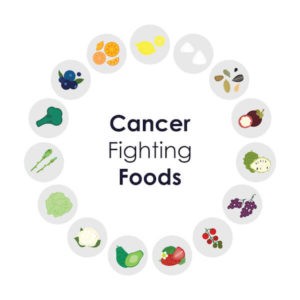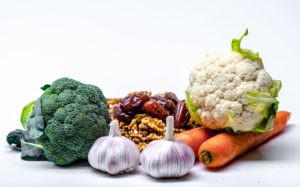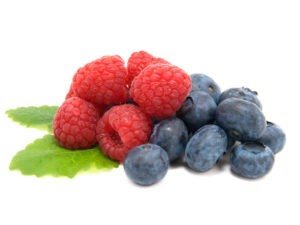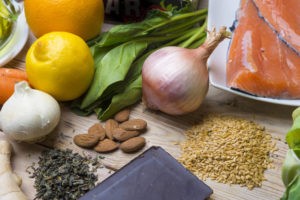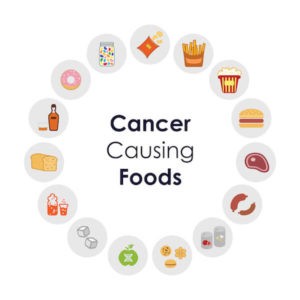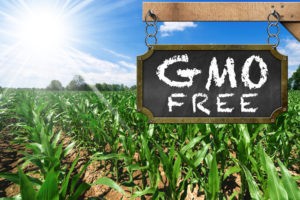Cancer-Fighting Foods: Foods That Help Reduce The Risk Factors Associated With Cancer
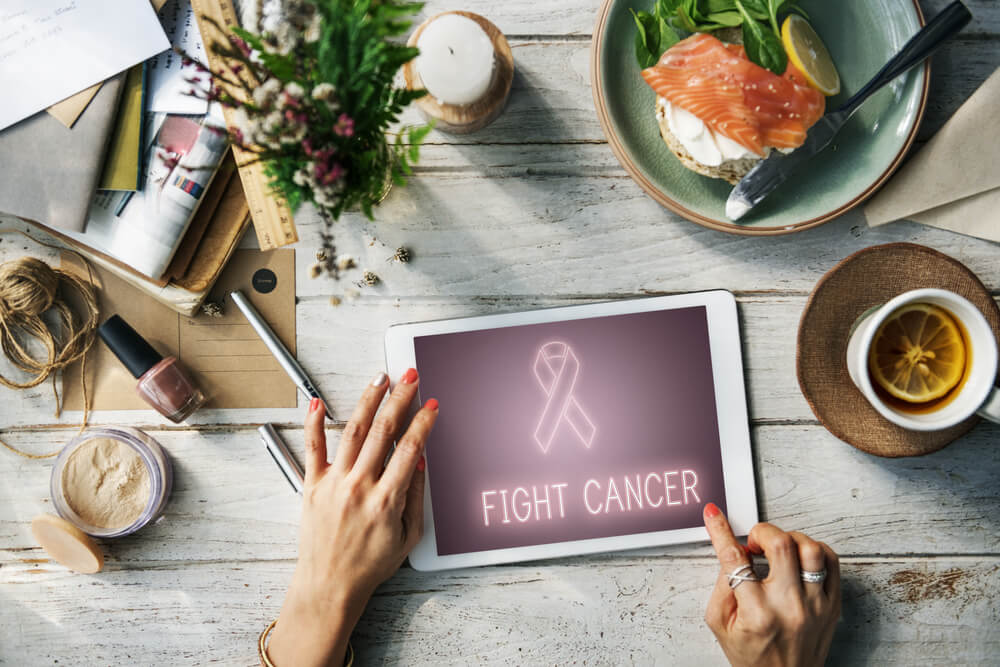
Cancer is a worldwide medical epidemic which affects a large number of individuals every year, and yet there is still so much we don’t know about this devastating disease. While there are many treatment options, there is no cure for cancer. However studies are now showing that 30-40 percent of occurrences of cancer may, in fact, be counteracted with dietary measures.
One of the most important aspects of healthy living is following a healthy diet. Practicing lifestyle habits that are completely in your own control — including eating a healing diet, juicing, and taking immune boosting supplements — can maintain your health, and lower many of the risk factors before cancer can occur. Your risks are determined by a variety of factors: from your genes and your environment, to your age and race. However an overall healthy, balanced diet is an equally important factor; and research supports that there are some foods in particular that are potent when it comes to cancer prevention.
In order to strive to lessen your risk of being diagnosed with cancer, you need look no further than your fridge. A
healthy diet is one of the ways you can aim to fend off cancer—and protect your body against other diseases as well. In
this blog, NJdiet will focus on the top cancer-fighting foods that you
should incorporate into your diet, as well as those foods and products you should definitely avoid for overall good health.
Cancer-Fighting Foods
Nuts & Seeds: A study published in the New England Journal of Medicine found that those who ate 1 ounce of nuts at least five times a week were 11 percent less likely to die from any kind of cancer. Walnuts in particular were shown in animal studies to stop the growth of tumor cells. High nut consumption was strongly associated with a reduced risk of certain cancers in both women and men, and researchers point to a number of compounds contained in nuts that appear to slow cancer.
Similarly, flax, chia, and hemp seeds are extremely rich sources of omega-3 fats. Flaxseed consumption protects against heart disease, and lignans, which are present in both flaxseeds and sesame seeds, have anti-cancer effects. Additionally, sunflower seeds are rich in protein and minerals, pumpkin seeds are rich in iron, calcium and zinc, and sesame seeds have the greatest amount of calcium of any food in the world, providing great amounts of vitamin E.
Broccoli: Broccoli has long been known as a cancer-prevention food, thanks to a 20 year old study that found an association between eating cruciferous vegetables and a lower risk of cancer. Further research found high amounts of potentially anti-cancer compounds in broccoli and broccoli sprouts. Cauliflower, brussel sprouts and kale are also rich in potassium, folate, vitamin C and a “cocktail” of phytochemicals, all of which might help ward off the disease.
Berries: Berries are known to have cancer-fighting phytonutrients. Dark raspberries contain high amounts anthocyanins, which helps slow down the growth of cancer cells. Berries also contain ellagic acid and vitamin C. A recent study found that those people who ate blueberry powder daily — the equivalent of 1 2/3 cups fresh blueberries — for six weeks experienced rises in natural killer cells, an immune system component involved in fighting cancer.
Garlic: Garlic has long been known for it’s cancer protection qualities. A review published in the journal Cancer Prevention Research stated that the strongest evidence of cancer defense is for onions and garlic against digestive tract cancers—and other research suggests garlic lovers are less likely to develop pancreatic and breast tumors. In fact, women with the highest levels of garlic in their diet had a 50 percent lower risk of certain colon cancer than women who ate the least.
Beans: Beans are filled with fiber and protein, which could help you feel full and lower your risk of obesity (thus, lessening your cancer risk). The high fiber content in beans feeds the healthy bacteria in the intestine and keeps the cells lining the digestive tract healthy, minimizing cancer risk. Beans also contain folate which is associated with a reduced risk of colorectal, breast and other cancers.
Tomatoes: Studies have found that higher total tomato consumption, and intake of cooked-tomato foods, were both associated with reduced risk of prostate cancer. Additional studies suggest that eating cooked tomatoes may result in higher blood levels of lycopene, which may be healthier than eating raw tomatoes or drinking tomato juice. Tomatoes are the best dietary source of lycopene, and according to various studies, lycopene was found to stop endometrial cancer cell growth.
Cancer-Causing Foods To Avoid
Regularly consuming certain foods and products can actually increase the risk of developing cancer. To increase wellness in your diet and to have it positively affect the most important thing of all – your health – try your best to steer clear of these dangerous, cancer-causing items:
Anything Genetically Modified: Genetically modified organisms (GMOs) can be found in just about any unnatural food on the shelves in your supermarket. These foods contain chemicals that, in many studies, have been shown to increase the growth rate of tumors and the risk of most types of cancers. If you buy all the processed foods that’s so widely available, you will have a hard time avoiding GMOs. However, if you stick to certified organic foods and certified non-GMO foods, you can improve your overall diet and health along with decreasing your risk of developing cancer.
Farmed Fish: Fish is something that dieters tend to eat a lot, as it can be quite nutritious and low calorie. However, farmed fish, especially farmed salmon, is very bad for you in terms of your cancer-risk. It contains all kinds of chemicals and pesticides, which have been shown to increase cancer risk when ingested. To make matters even worse, most farm-raised salmon contains mercury and dioxins, both of which have also been shown to increase cancer risk. To lower this risk, consume wild fish or certified natural fish. This will give you all of the benefits in your diet of eating fish and none of the harmful effects.
Processed Meat: Processed meat, such as lunch meat, bacon, and hot dogs, are huge no-nos. The chemical preservatives in these foods are designed to keep them fresh for a long time, but unfortunately, the sodium and nitrite used in doing so increase the risk of cancer, especially colon cancer. Look for nitrite-free, natural products.
Refined Sugar: The biggest cancer causing food is high-fructose corn syrup (HFCS) and other refined sugars. Refined sugars (and foods made with them) are the source of major insulin spikes and feed the growth of cancer cells. Since the majority of the sugar supply in the U.S. is made using genetically modified (GMO) sugar beets, a healthier option is organic honey, coconut sugar, or maple sugar.
Microwave Popcorn: From the chemically-lined bag to the actual contents, microwave popcorn is a no-no. Not only are the kernels and oil likely GMO unless organic, the fumes released from artificial butter flavoring contain diacetyl, which is toxic to humans. Make your own organic popcorn the old-fashioned way – it tastes better and is a healthier choice for you.
Canned Goods: Most cans are lined with a product called bisphenol-A (BPA), which has been shown to genetically alter the brain cells of rats. Many plastic goods, thermal paper, water lines, and many dental composites also contain BPA. Stick with fresh or frozen vegetables that have no added ingredients, which are better for you and available year-round.
Soda and Carbonated Beverages: Sodas have been at the center of the health debate for decades as a major cancer-causing product. Filled with high-fructose corn syrup (HFCS), dyes, and other chemicals, soda is very bad for every aspect of your health. Soda provides zero nutritional value and depletes your body of the nutrients you get from other foods. And don’t be tricked by “diet” sodas, because those drinks likely consuming aspartame, which is also extremely bad for your health.
White Flour: When flour is refined, with all nutritional value removed; and the glycemic index for white flour is very high – meaning it spikes your insulin levels without providing nutritional fuel. Carbohydrates are converted to sugars by your body, so excessive products that contain white flour can lead to increased insulin resistance. Simple sugars and refined carbohydrates are known to fuel certain cancers.
Hydrogenated Oils: Vegetable oils are chemically extracted from their sources, chemically treated, and then more chemicals are added to change the smell and taste. Hydrogenated oils are packed with unhealthy omega-6 fats and have been proven to alter the structure of our cell membranes.
While this is just a sampling of the many items that have been known to increase the risk of cancer, the most important thing is to eat a healthy, balanced diet and avoid the processed foods we often tend to gravitate towards. The best way to protect yourself and to improve your overall health is to eat a clean, all-natural diet!
* * * *
Taking care of your body to look good and lose weight is important, but it’s not going to matter in the long run if your body is unhealthy. Food is something we need to eat every day, but sometimes when thinking about a new diet we focus only on weight loss and calories, not overall health and nutrition. Taking the necessary steps to ensure our wellness, and fight against diseases, is the best first step when considering an eating plan.
If you are ready for a lifestyle change, NJdiet is here to help! We help you not
only
keep the fat off , but to stay healthy. Every factor regulating metabolism, appetite, fat storage & fat burning is carefully energetically tested for success. Using DNA Testing over 40 different factors are assessed genetically to make sure you keep it off and stay healthy.
Our program is not only aimed at promoting healthy weight loss, but aims to improve your total wellness — where
the side effect is weight loss, but the end result is better overall health and well being! When you come in for your
initial evaluation and consultation at NJdiet, we will
explain how many metabolic factors are assessed to genetically make sure you not only lose the weight, but ensures you keep it off and stay healthy for a lifetime.
Attending the Initial Evaluation and Consultation is normally $99, but by registering on our website it will only cost $27!
We welcome the opportunity for you to have a consultation with us, so register online now!

